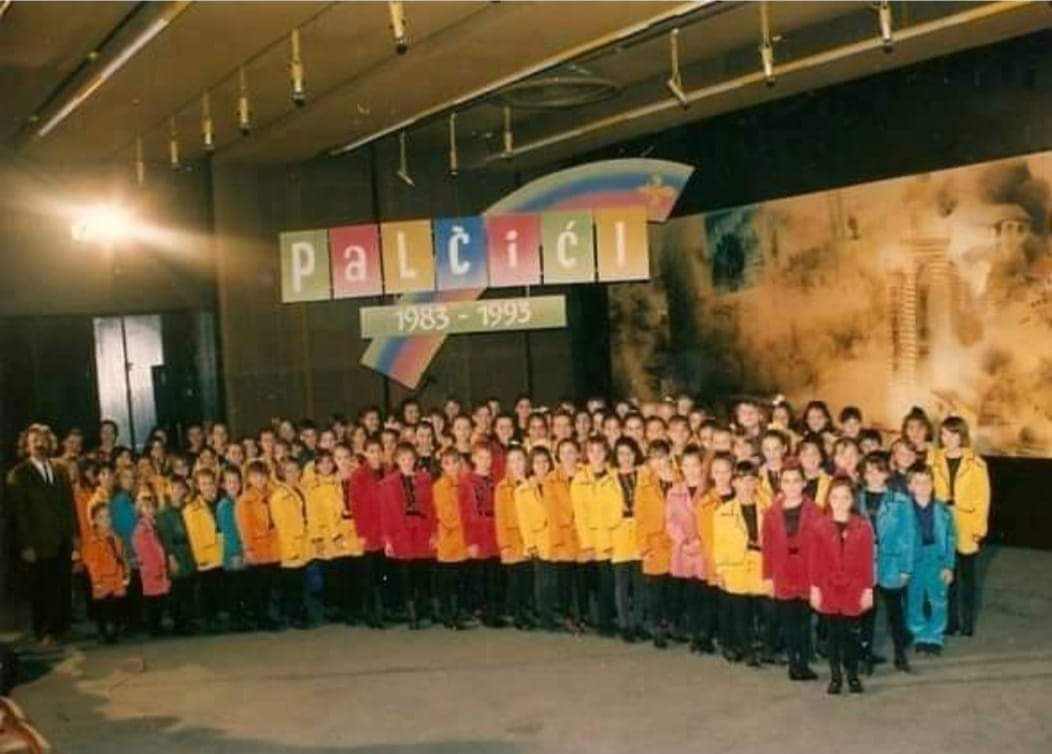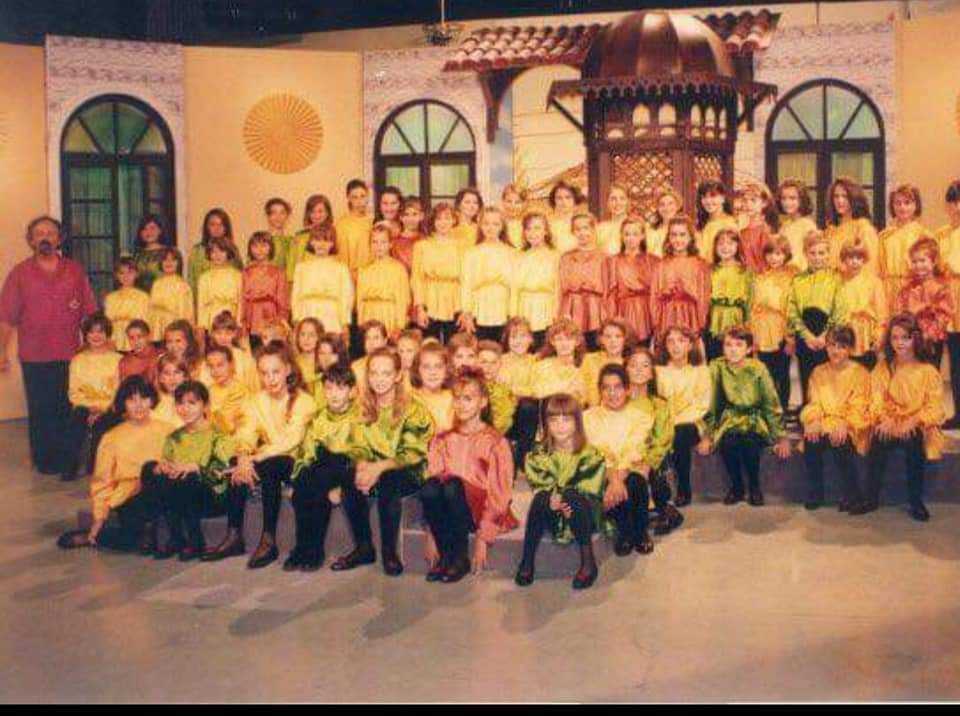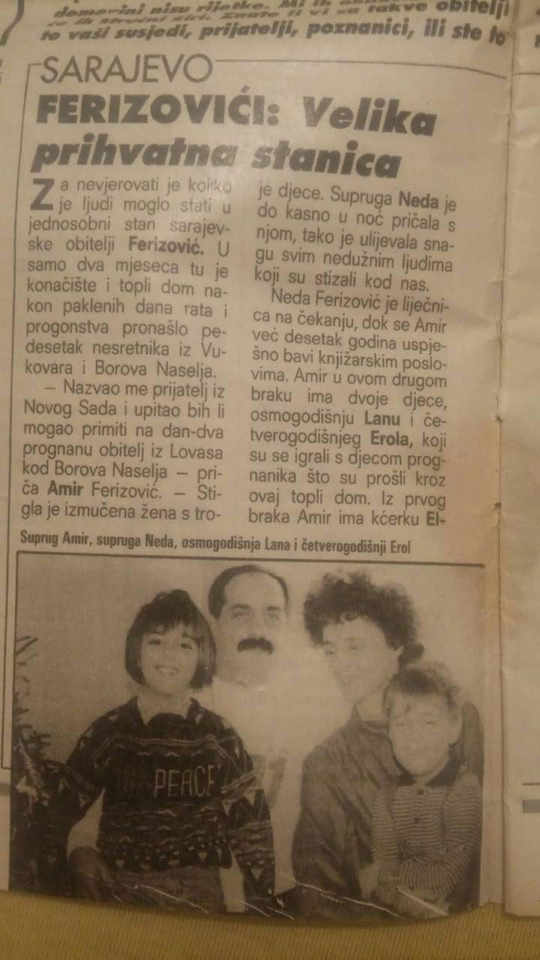
During the siege of Sarajevo, the longest siege of a capital city in modern history, Lana Ferizović, as a young girl, sang in Palčići [Thumbelinas]—a children’s choir that sent messages of peace and love to the world.
During this time, she wrote a book of songs, as well as acted, sang, and recited her poetry. Today, along with being a medical doctor and professor, Lana Ferizović-Karađole continues to nurture her passion for music. As she says, “I do most of my work through music because I believe that the best things come from the heart and it’s easier to remember something if it’s sung.”
“Once you become a Thumbelina, you remain one forever. I sang for peace before the war, during the war, and I sing now. I use music as a tool in education to promote health and prevent disease,” said the Sarajevo native who currently lives in Dubrovnik.
During the war, she explains that the Thumbelinas sang in the RTV House, the destroyed City Hall, basements, private homes, or “wherever we could under the rain of shells.” In addition to children’s songs, they sang songs dedicated to Sarajevo, recipients of the Zlatni Ljiljani [Golden Lilies] military medal, and even the Operetta Europa.

She became a member of the Thumbelinas at the age of eight and emphasizes: “I have forever remained one and proudly bear that title.”
The majority of the poems in her collection Iskre u tami [“Sparks in the Darkness”] were written during the siege of Sarajevo. She participated in the children’s radio show “Radiodrom,” hosted by Velimir Milošević, a children’s poet and a former star of the Radio Television Sarajevo morning program. She acted and recited her poems, some of which were later set to music and performed on the Mali šlager children’s singing competition. Later, she released a pop music album titled Nešto [“Something”], which she wrote and recorded herself, with musical arrangements by Nermin Dedić-Fićo.
“I took my first steps into singing as Thumbelina in the children’s Thumbelinas choir under the baton of Professor Slavko Olujić and I’ve really carried the title of Thumbelina proudly from an early age. I was even born prematurely, after seventh months, just like Thumbelina,” Ferizović-Karađole says with a smile.
Music Sung by Candlelight
She recollected that during the cold days of the war, on military cots in basements with other neighbors and local children, with candles or lanterns providing at least a little light in the darkness, she practiced solfeggio, sang, and tapped with frozen hands to overcome the hardship and suffering they were experiencing.
She adds that while she practiced her first notes under faint candlelight, a barrage of shells, cannons, and mortars echoed in the background. “Those aren’t pleasant sounds, but I tried to overcome them with song,” she emphasized. She added that under that same rain of grenades, she ran to attend rehearsals for the Thumbelinas choir, “Radiodrom,” the drama club, and for a time, a basement school, located in a former butcher shop.
She recalled that once, when she was in front of the building with some friends, the detonation of a grenade blasted them onto the stairs. The children were covered in blood, some were missing limbs, many were wounded, and others were gone—they had perished. By some miracle, she survived, bearing witness to the struggle of children against the ravages of war.
PEACE Sweater
Back then, as a young girl, and even today, as a mother of a boy, she didn’t understand why war was happening and doesn’t understand why it still happens in the world. From her parents and older siblings, she says she learned the importance of helping other people. “Just before the war in Sarajevo, my family helped refugees from Vukovar by welcoming them into our small, modest home in one room that we had. That’s when I learned that it’s not about how much you have, but what you share with others,” emphasized Ferizović-Karađole.
At that time, they were featured as the family of the year in the magazine Mila, and she wears a sweater in the family photo that says PEACE. “Then and now, I want peace. In that sweater, I sang for peace with my dear Thumbelinas,” she stated.

The iconic Thumbelinas children’s choir reunited 20 years after the siege of Sarajevo. As Ferizović-Karađole describes “It was wonderful, after so many years, to find former Thumbelinas, now grown mothers, singing songs with our children—Sarajka, Volim Sarajevo, Skenderija, and so on—on the same stage that means life,” said Ferizović-Karađole.
Thumbelinas also received the Sloboda award in 2017 because, as little ones, they opposed the cruel war with songs.
“We were little Thumbelinas, small but truly important,” Ferizović-Karađole adds, emphasizing that it taught them that there is always hope, that there is a spark of light in darkness, and that song is stronger than any evil in the world. Because of songs and companionship, children in Sarajevo had a childhood, a wartime childhood, which could fill books.
Ferizović-Karađole graduated from the Sarajevo University Medical Faculty, where she met her husband, who is also a medical doctor. They studied together, took exams together, and graduated together. Currently, they are employed at the Medical School and the Maritime School in Dubrovnik.
“I sing those songs to my child and to the students of the Dubrovnik Medical School, where I work as a professor, but I also write new ones,” she said, adding that she passes on what she learned as a little girl—the knowledge, experience, song, pain, joy, and happiness found in the little things that make life meaningful—because the best lessons are learned by example.
She strives to set a positive example and be role model for children navigating the treacherous waters of life, because their lives and the lives of others are in their hands.






